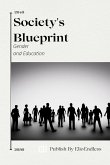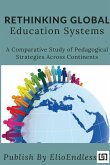Evolving Saving and Investment Habits In today's world, the earning capacity of people has increased as the percentage of educated individuals and the working population has risen compared to previous years. With the increasing literacy rate, people have acquired knowledge about how to earn and spend money. In this process, they have also developed the ability to save their surplus income for future needs. The concept of saving involves setting aside an amount to meet future uncertainties. Money saved in the present can be used to secure future financial burdens. In the current era, numerous perspectives on saving and investment have been expanding, and the development of saving and investment habits among people has also increased. Promoting Saving Habits The development of the saving habit has led people to explore available investment alternatives and how to approach these options to grow their surplus funds and gain a certain return. In the traditional era, people used to keep their savings at home, but after the introduction of banks and an understanding of how banks safeguard their funds, banks became the first institutions to promote saving habits among the people. India's Saving Culture India, a country with rich cultural and ethical values, is known for its frugal spending habits and high propensity to save for a better future. It is a developing nation where the national saving rate has consistently increased in the post-independence period, albeit with occasional fluctuations. In an international context, India boasts a high saving rate compared to other developing countries. Developed countries, with their higher income levels, encourage more savings and investment, resulting in increased capital formation. However, in India, income standards are often uncertain, making it challenging for individuals to save significant amounts. The Power of Saving and Investing The economic development of a nation relies on the growth of income levels and the cultivation of a savings and investment culture among its people. Economic units, regions, or individuals with surplus funds play a crucial role in this development, alongside those facing deficits. It is a common saying that money doesn't grow on trees, but it can grow when saved and invested wisely. The phenomenon of saving and investing offers financial security for the future. The Importance of Financial Knowledge For example, if one sets aside Rs. 10 every day at home, it accumulates to Rs. 300 in a month and Rs. 3,600 in a year. However, if that amount is saved and invested in a savings account with a 5% annual interest rate, it grows to Rs. 3,780 in a year and Rs. 18,900 in five years. This demonstrates the power of compounding. Investing surplus income in various alternatives is a crucial step in financial planning to meet future requirements. To make informed decisions about saving and investing in better alternatives, one needs knowledge about these financial concepts. The Path to Financial Security No one is born with innate knowledge of how to save or invest. Every successful investor begins by understanding the fundamentals of financial management. While a fortunate few may stumble upon financial security through unexpected windfalls, most people achieve it by consistently saving and investing over an extended period. Time and again, individuals with even modest means who embark on this journey attain financial security, fulfilling their promises of homeownership, educational opportunities for their children, and a comfortable retirement-all made possible by investing in suitable financial avenues.








